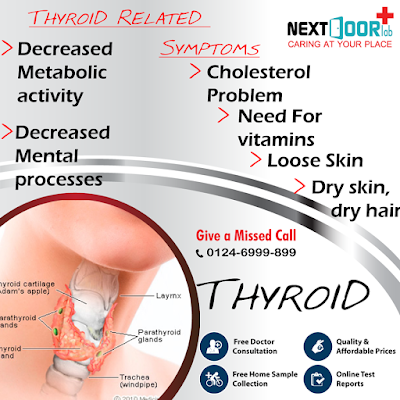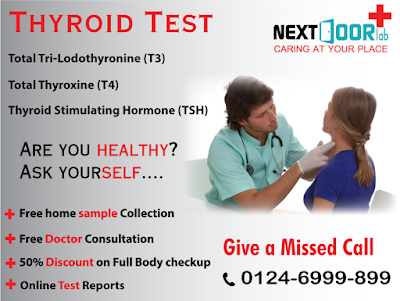Your endocrine system’s most important part is your thyroid gland. The gland and the hormones it produces are responsible for all bodily functions. When something goes wrong with your thyroid, you can experience a whole bunch of problems. When your thyroid is overactive, excess of T3 and T4 hormones are produced and causes hyperthyroidism. When your thyroid fails to produce optimum thyroid hormones – T3 and T4 – you are having hypothyroidism.
The good news is you can now boost your thyroid function naturally. Lets have a glance at some of the natural remedies to boost thyroid function.
Symptoms of hyperthyroidism
1. Weight loss
2. Frequent bowel movements
3. Increased anxiety
4. Irritation or jittery feeling
5. Trouble in sleeping
6. Irregular heartbeat
7. Hair thinning
8. Increased sense for smell
9. Irritable bowel syndrome or IBS
10. Food allergies
Natural treatment for hyperthyroidism
Improving your diet can help in improvements in hyperthyroidism patients.
1. Ginger
2. Bone broth
3. Green juices – prepared from spinach, kale and spirulina
4. Whole foods – lean proteins, fresh fruits and vegetables
5. Anti-inflammatory herbs – rosemary, oregano and basil
6. Essential oils – myrrh and frankincense
Conventional dairy products, gluten packages foods and artificial flavorings should be avoided when you are suffering from hyperthyroidism.
Symptoms of hypothyroidism
1. Weakness
2. Weight gain
3. Sleeplessness
4. Heart palpitations
5. Decreased energy levels
6. Constipation
7. Poor nail quality
8. Hair loss
9. Pain in joints
10. Feelings of sadness
11. Depression
12. Nervousness
13. Puffy eyes and face
Natural treatment for hypothyroidism
Specific nutrients may help in dealing with hypothyroidism. Particular foods for a nutrient deficiency can help in overcoming and are discussed below.
1. Iodine
The recommended minimum iodine uptake is 150 µg/day for adults. Good sources include milk, poultry, eggs, seaweeds, kelp and cheese.
It is the supporter of thyroid synthesis and is required in sufficient quantities to not let severe hypothyroidism embrace you. Good sources include shitake mushrooms, eggs, chicken, turkey, beef, tuna, sardines, shrimp, scallops and salmon.
3. Zinc
Zinc is important as it is required for the conversion of T4 to T3. Good sources of zinc include mollusks, nuts, legumes, shellfish and meat.
4. Vitamin D
Obviously, the sunshine is the best medium to increase your low vitamin D levels, but certain food sources can help too. These include milk, orange juice and yogurt.
5. Vitamin B
Taking entire vitamin B complex can help in overcoming vitamin B deficiency. Good sources include dark green leafy vegetables, nuts, seeds, legumes, grains, seeds, milk, yogurt, meat, fish and eggs.
Probiotics help in maintaining a healthy gut flora and reduces leaky gut syndrome and other gut problems leading to nutrient deficiencies and inflammation problems. Such foods include kefir, natto, kombucha, sauerkraut, kimchi and yogurt milk.
Avoid foods like gluten, conventional dairy, sugar, goitrogen fruits like Brussels sprouts, refined flour products and tap water when suffering from hypothyroidism.
Autoimmune diet
If you are suffering from an autoimmune thyroid disorder like Grave’s disease or Hashimoto’s disease, then follow the below simple steps for alleviating your thyroid symptoms incredibly:
1. Quit on all processed foods.
2. Avoid soy, gluten and grains.
3. Focus on green leafy vegetables, quality fish and meats and some fruits like berries.
4. Avoid foods that can be inflammatory like tomatoes, eggs, natural sweeteners, grains, etc.
5. Reduce your sugary food intake to as low as possible.
6. Eat thyroid-boosting oils like coconut oil, cod liver oil, egg yolks, red palm
oil, raw butter and ghee.
Herbs
Herbs help in both strengthening and toning your body’s system. They can be used in three different forms mentioned below
1. Dried extracts – powders, capsules and teas
2. Glycerites – glycerin extracts
3. Tinctures – alcohol extracts
Before choosing herbs as your home thyroid treatment, especially those who are pregnant should not use herbal products on their own, consult with the doctor first and take them as directed. The common herbs that can be used include green tea and lemon balm. Adaptogenic herbs are helpful in hypothyroidism, such as Rhodiola, as they support your adrenal glands relieving your body’s stress.
There are certain herbs which should not be taken when suffering from any thyroid problem, as their use has been controversial and studies are not clear on their use. Examples include ashwagandha, bladderwrack, Korean or Chinese ginseng, caffeinated green tea, etc.
Supplements
If you are taking supplements for your thyroid condition, then consider the intake values strictly. For example, selenium intake in a day range from 100 to 200 µg. Choose supplements when your body is unable to produce enough the required nutrient from your diet. Be particular with the dosage. Always consult with the doctor before making any changes either to your diet or to your medications.
Lifestyle changes
Once you are aware of your thyroid condition, bring the following changes immediately in your routine for better disease management:
1. Relaxation is the key to deal with the stress. Do things that lower your
stress levels and relax you.
2. Sleeping properly for at least 8 hours is necessary.
3. Make exercise your priority, not hard workouts but low-impact exercises
like running and walking.
4. Do rebounding every day to restore your blood flow and increased
drainage of lymph.
5. Avoid smoking and drinking alcohol.
6. Eliminate trans-fatty acids from your diet like French fries, donuts,
cookies, crackers, margarine, cakes, etc.
These changes at home along with medications and proper diet can bring an incredible change to your lives dealing smartly with your thyroid problems – be it hypothyroidism, hyperthyroidism, Hashimoto’s disease, etc.
Have you ever tried any of the above mentioned changes? Facing difficulty in managing and want guidance based on your thyroid condition, then you can easily book a thyroid test online or talk to our doctors at NextDoorLab free by just giving a missed call on 0124-6999-899.



